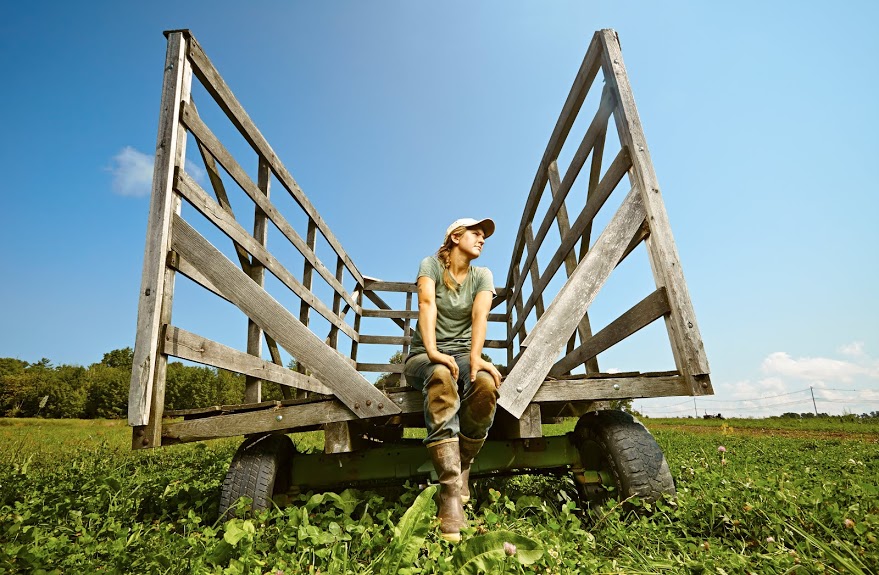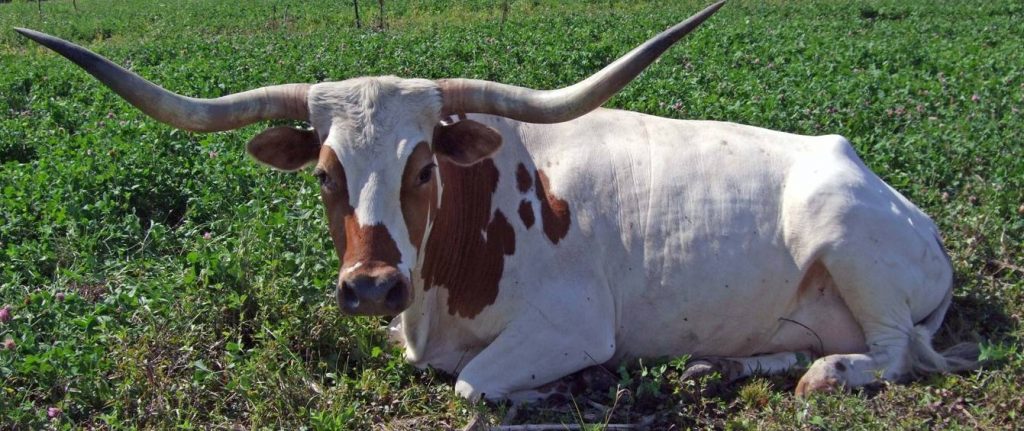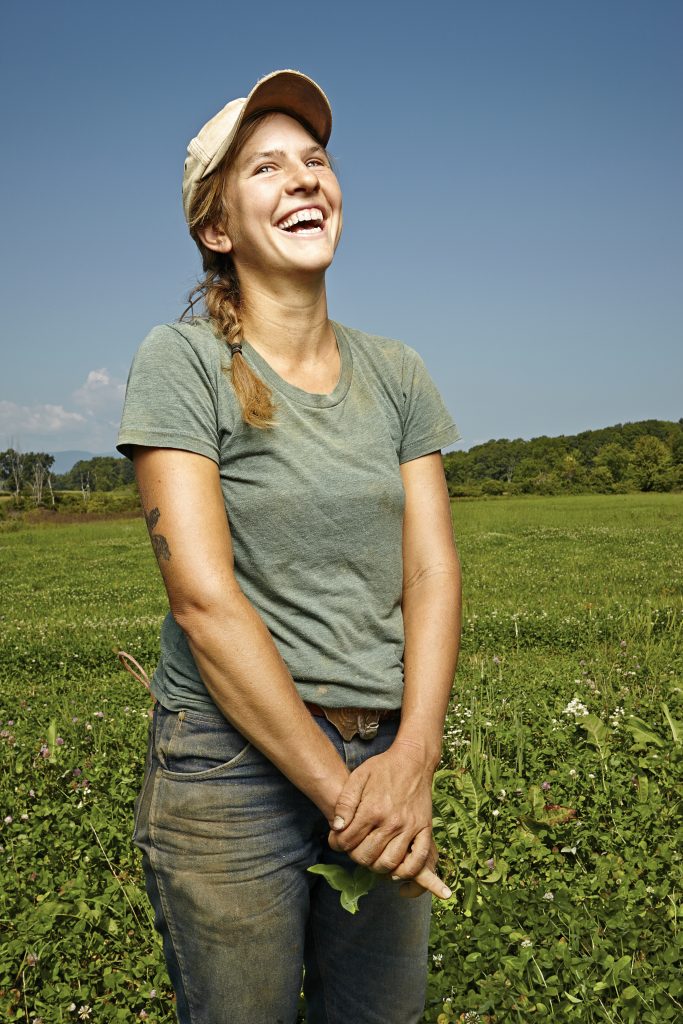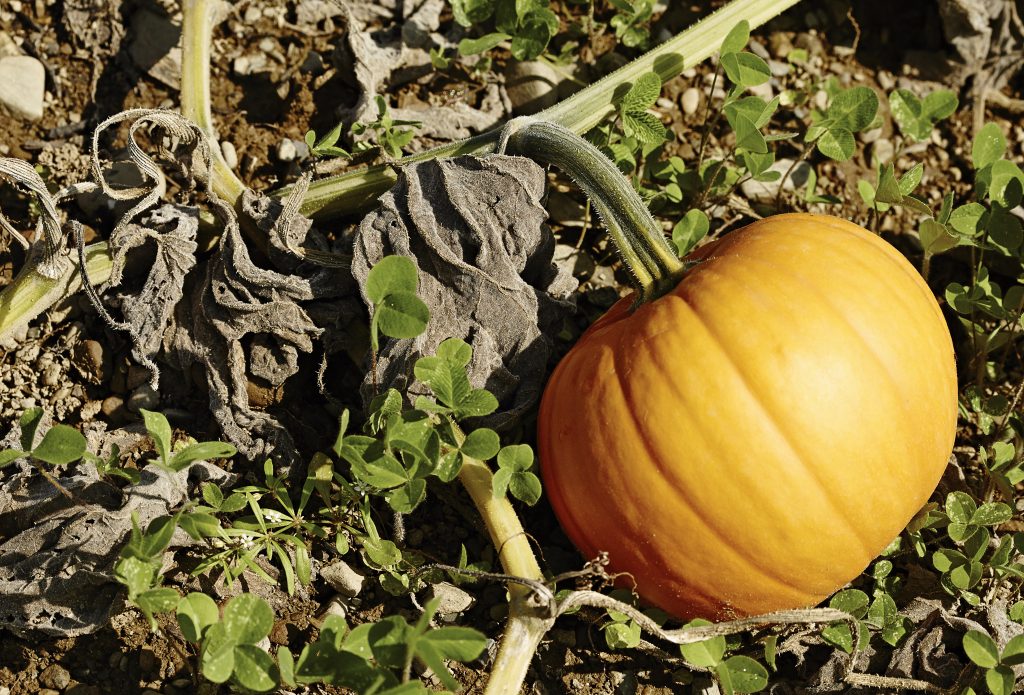Farm Aid partners with organizations all over the country to work towards our mission of creating a family farm-centered system of agriculture in America. Since our first concert in 1985, we’ve granted over $24 million to more than 300 organizations, creating a strong network of allies to keep family farmers on the land. Each year, grantees report back on what they’ve accomplished.
This post features stories from two of our grantees, Food Works and The Carrot Project. We wanted to highlight the continuing education opportunities that they have created for farmers in their communities.
We’ve condensed and edited each statement for clarity, but the following are our grantees’ own stories in their words. We hope you’ll be as inspired as we were by the uplifting work that’s happening all over our country.
Food Works
Food Works is an organization dedicated to increasing the viability of sustainable farmers in Southern Illinois through workshops that strengthen marketing, legal and financial skills.
Food Works offers a series of workshops in DuQuoin, Illinois called the Farm Tune Up. This series covers legal, financial, insurance, and marketing topics for experienced farmers who need to update their skills in an ever-changing landscape.
Using a peer-to-peer model, Food Works brought in Minnesota farmer and holistic farming trainer, Cree Bradley, as the lead presenter. Bradley shared her tools and insights into financial planning, record keeping and decision making. Cat Neville, publisher of the Midwest’s food magazine, “Feast,” and the television show Feast TV, also spoke at the workshop to share her broad view of local food and to encourage our Southern Illinois producers. Blaine Osman, a local attorney and farmer, shared his legal expertise. Local food chefs and successful farmer entrepreneurs joined the panel on the final day.

Kathi and Brad Morgenstern, owners of Heartland Longhorns LLC. Photo: Heartland Longhorns.
When Kathi Morgenstern registered for the Farm Tune Up workshop, she had never attended a Food Works training before. Kathi, a retired teacher, and her husband Brad, a retired coal miner, have been raising long-horn cattle in Tamaroa, IL, for more than a dozen years. They have pioneered sustainable cattle production in Perry County after the coal economy cut back its ranks and forced many people into retirement.
Food Works’ Farm Tune Up workshop gave the Morgensterns valuable feedback about their farm website. After working through exercises identifying her customers’ motivations, Kathi realized the importance of putting a human face, not just attractive longhorns, up front on their website. She resolved to update her website. Now when you visit their website at Heartland Longhorns you’ll see Brad and their dog too.
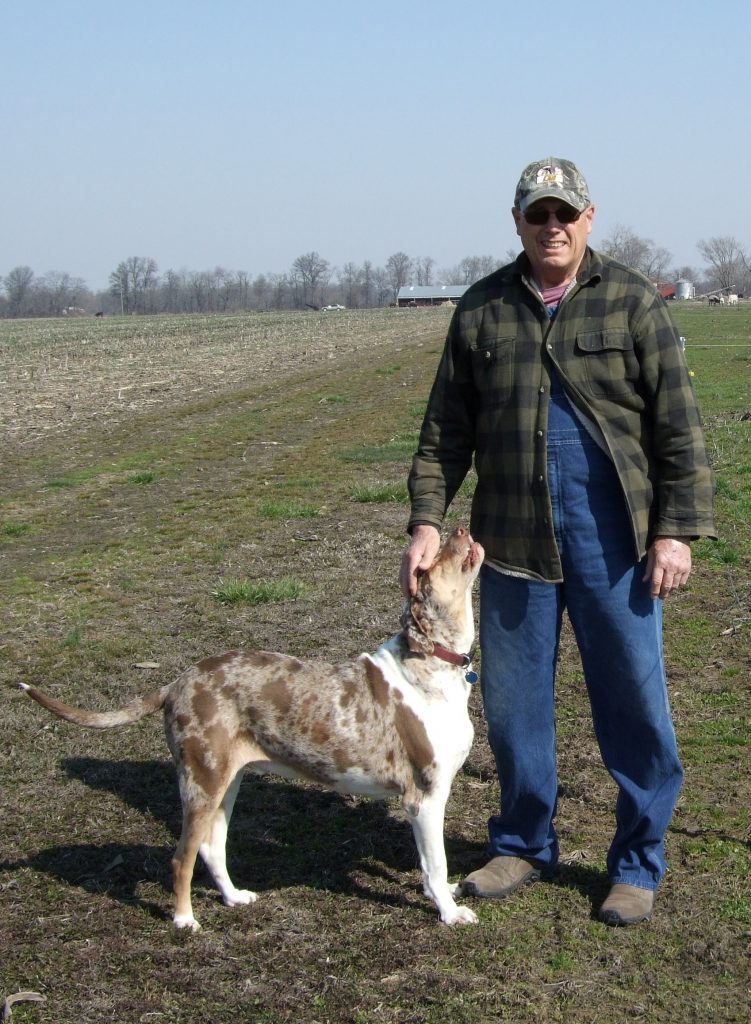
Heartland Longhorns strengthened their online marketing by adding a human face to their story. Photo: Heartland Longhorns.
The lesson seems to have inspired the entire family. Soon after Kathi attended the Farm Tune Up, her grandchildren (ages 9 and 11) made a video promotion that puts the ‘heart’ in Heartland Longhorns (watch it below). Their media now reflects their personal connection to their customers – well beyond the plate.
https://www.facebook.com/142984299047019/videos/1938133762865388/?v=1938133762865388
Food Works is confident that helping farmers nurture and grow relationships with their stakeholders will keep them on the farm for generations. By growing farmers and their markets, they are advancing toward their goal of creating a sustainable food system where all farmers succeed.
The Carrot Project
The Carrot Project supports ecologically and financially-sustainable, small and midsize farms and food processors by providing financing and financial literacy training. In 2018 alone, they served 70 farmers and food producers through outcome-based services, like one-on-one business assistance and lending.
Incorporated in 2012, Sparrowbush Farm produces specialty vegetables for 35 wholesale outlets and one farmers’ market on 11.5 acres in Livingston, NY. For her 100-member winter CSA, Ashley Loehr grows cold-hardy greens and storage crops.
Ashley did not have any business training in her background and initially steered clear of using credit. But after her second season in business, she wanted to scale up. She realized she’d need financing for a few key pieces of equipment. So she worked with The Carrot Project to make solid cash flow plans, which made her confident that she could afford to make loan payments. Although Ashley did not have a credit history or much traditional collateral, based on her cash flow plans she qualified for a loan through The Carrot Project and the Salisbury Bank and Trust Company, which Ashley says was a game changer.
With that first loan from The Carrot Project, Ashley was able to scale up from three to six acres of vegetable production in a single season. Two years later, Ashley saw that if she could make the jump to 12 acres of vegetable production, she could supply bigger wholesale contracts. To do so, she would need to be able to transplant and harvest root vegetables mechanically. She applied for and received a New York New Farmer grant for equipment to transplant and harvest root vegetables mechanically, but the catch was that the grant would only reimburse her after she made the purchases. Ashley did not have the necessary cash on hand, so she took out another Carrot Project loan to buy the new equipment and successfully scale up her production.
In addition to providing financing at these two critical junctures, which helped Ashley make significant production jumps, The Carrot Project has also provided technical assistance that bolstered Ashley’s financial literacy. She has developed a more robust financial management tracking system that supports the growth of her business, and she adheres strictly to a cash flow plan, which she understands how to generate each season.
Ashley writes, “The pressures and continuity of growing food as a livelihood can be overwhelming at times and deeply educational at others. I am grateful for organizations like The Carrot Project that support farming businesses and allow growers to build skills that are not necessarily intuitive.”
